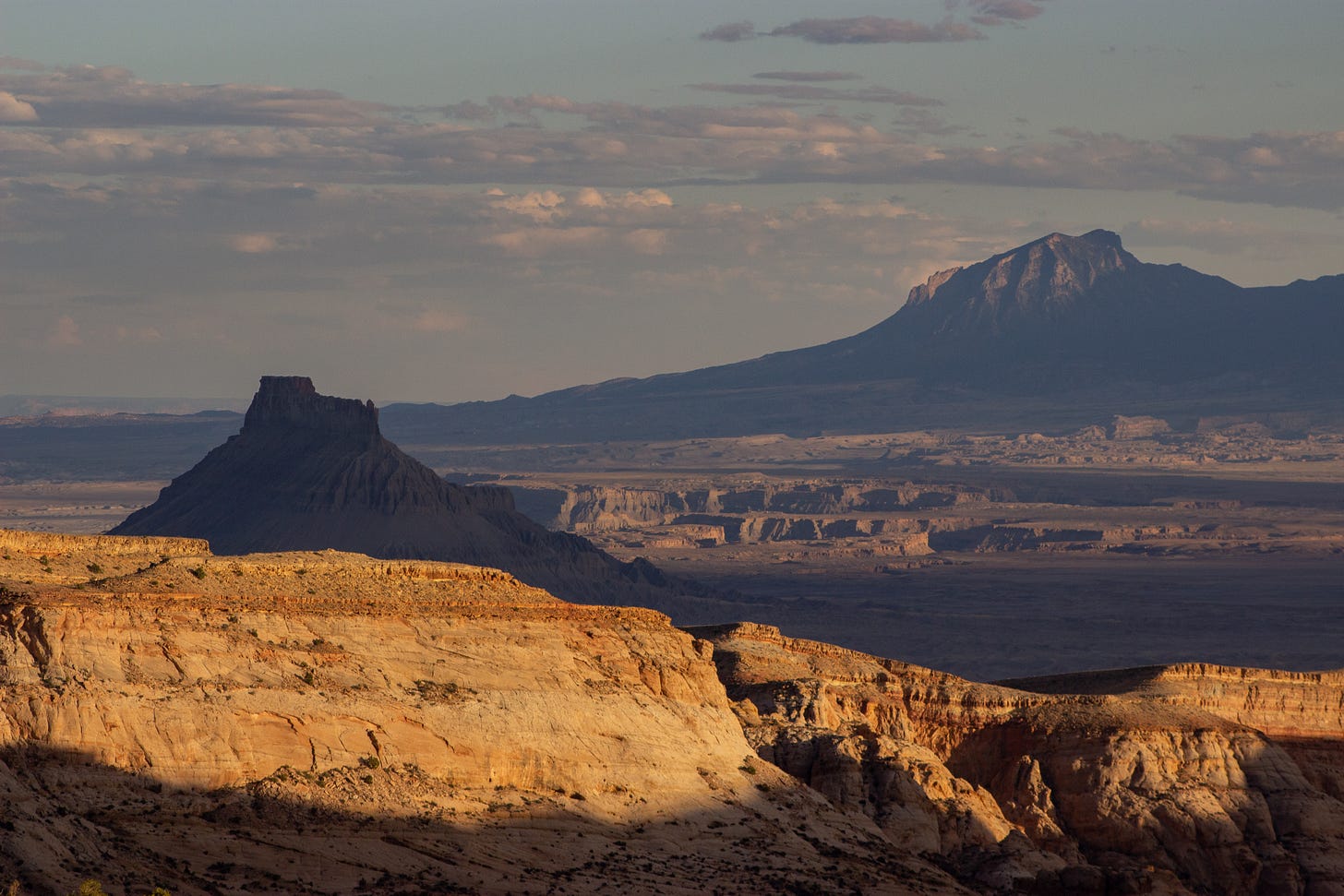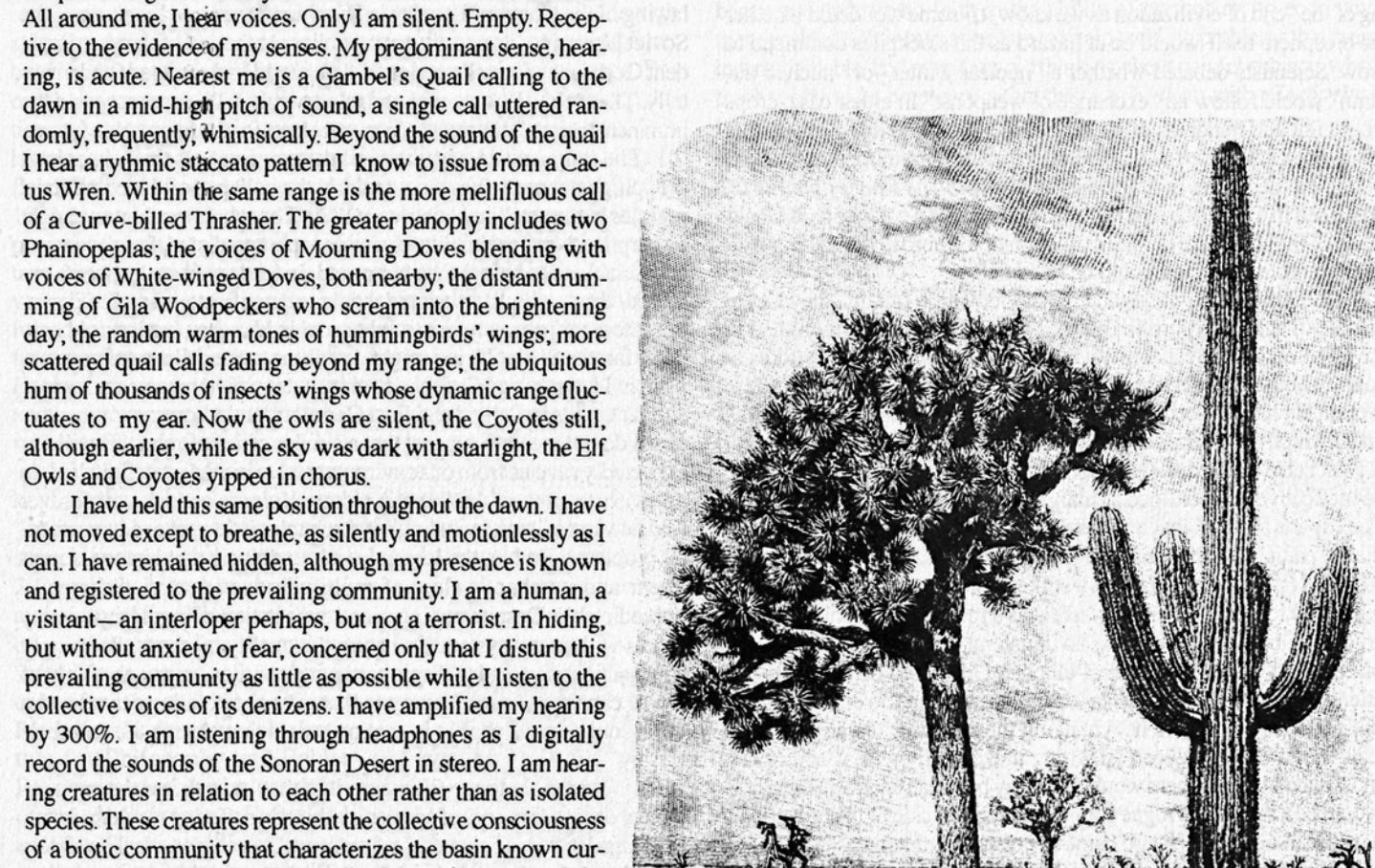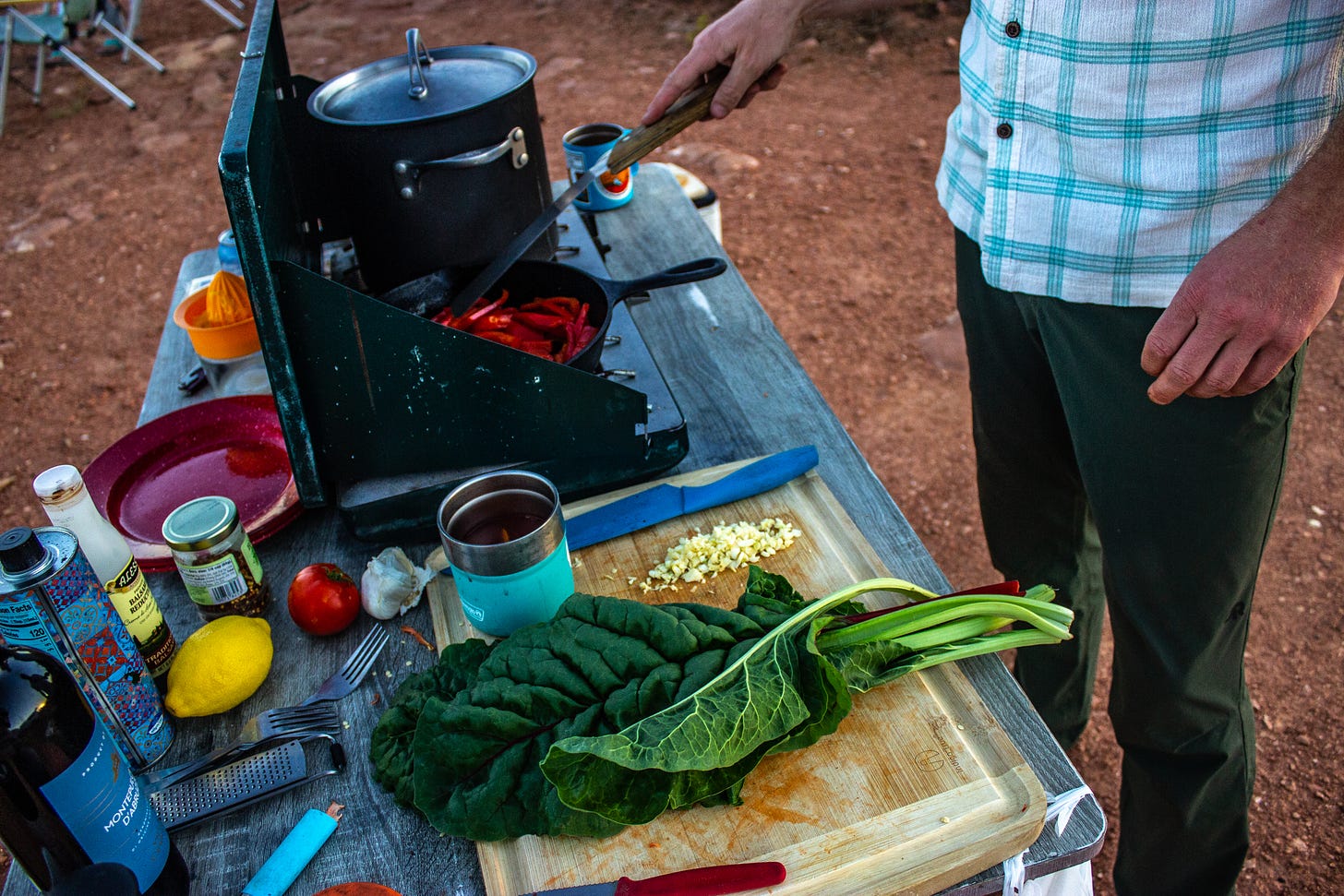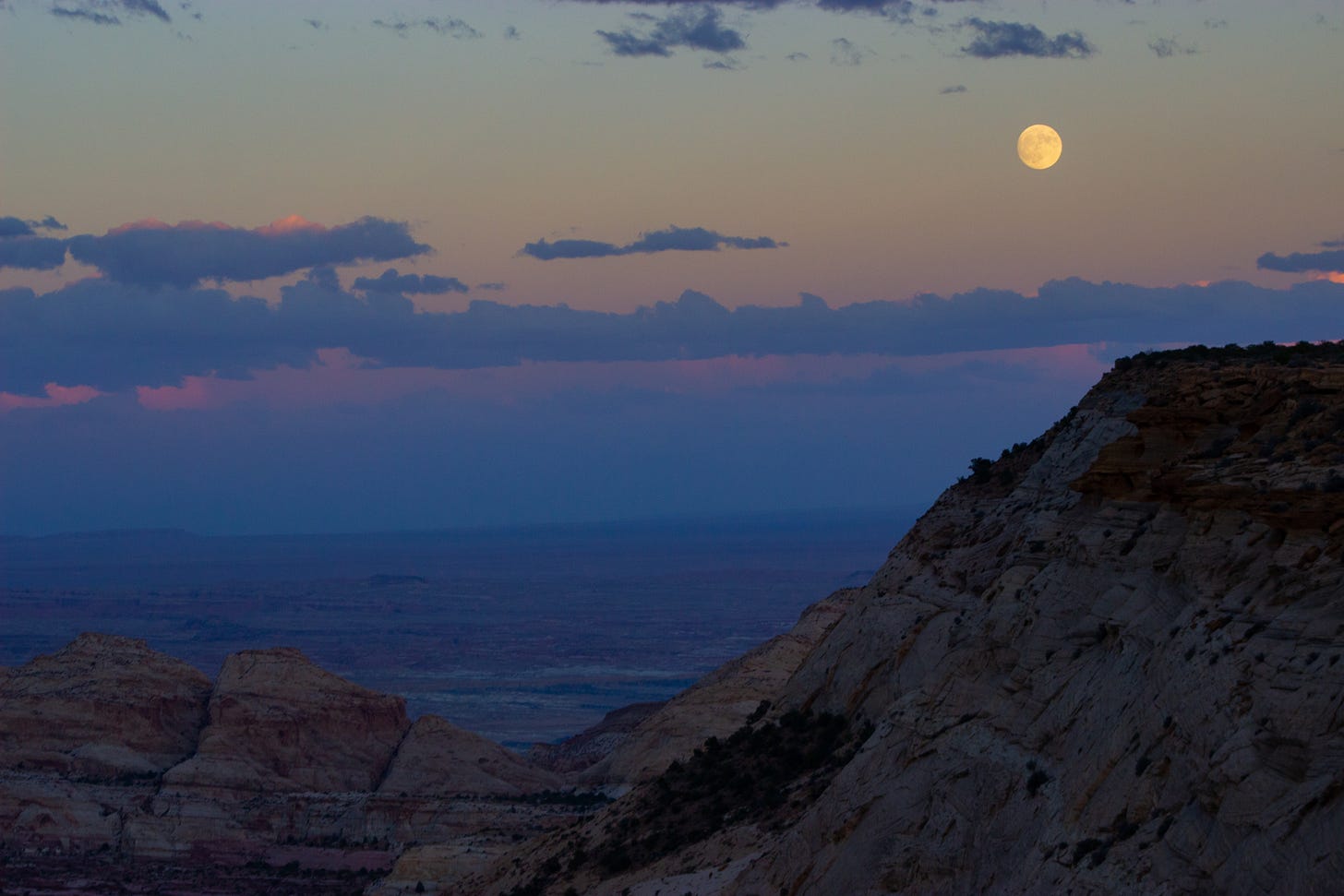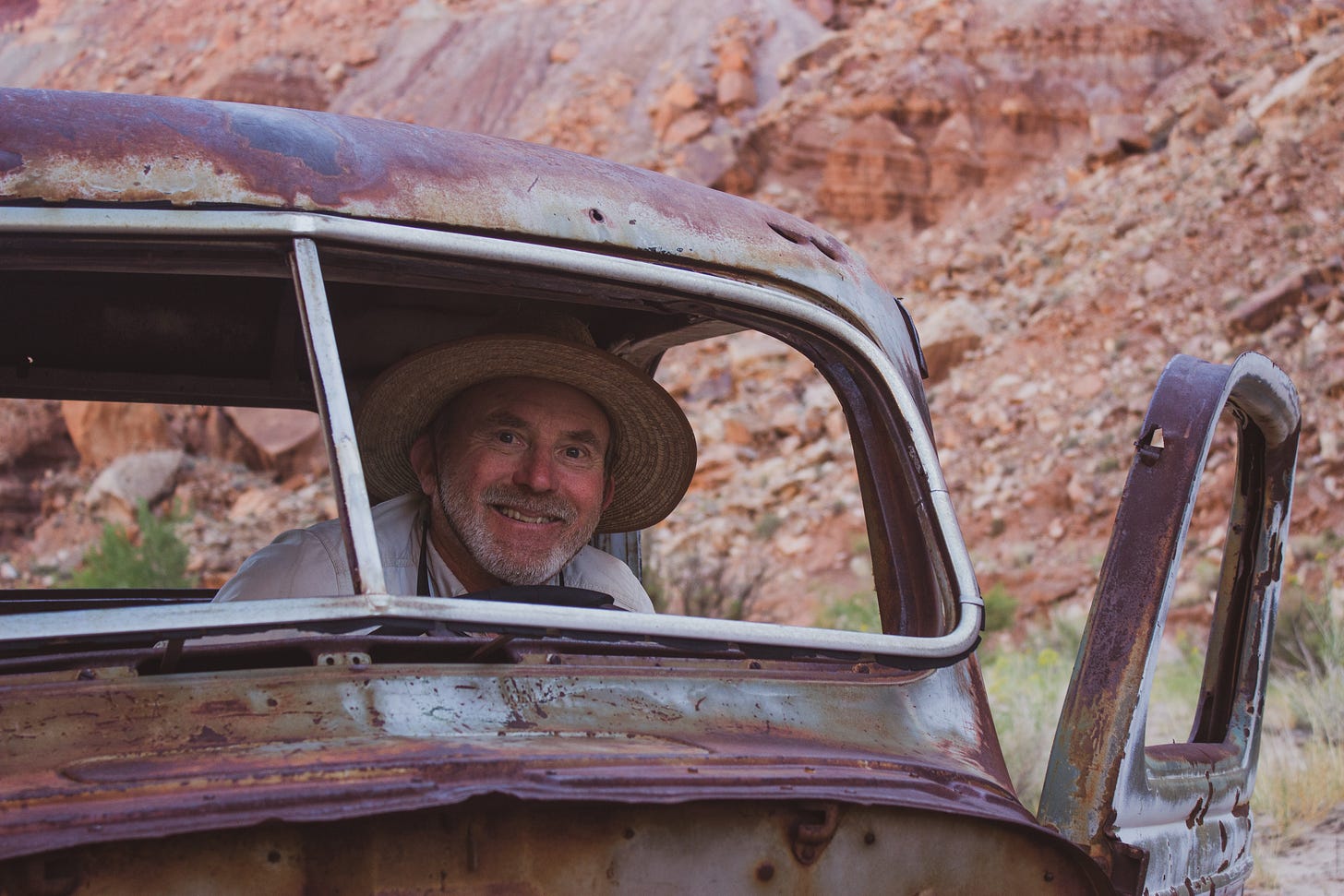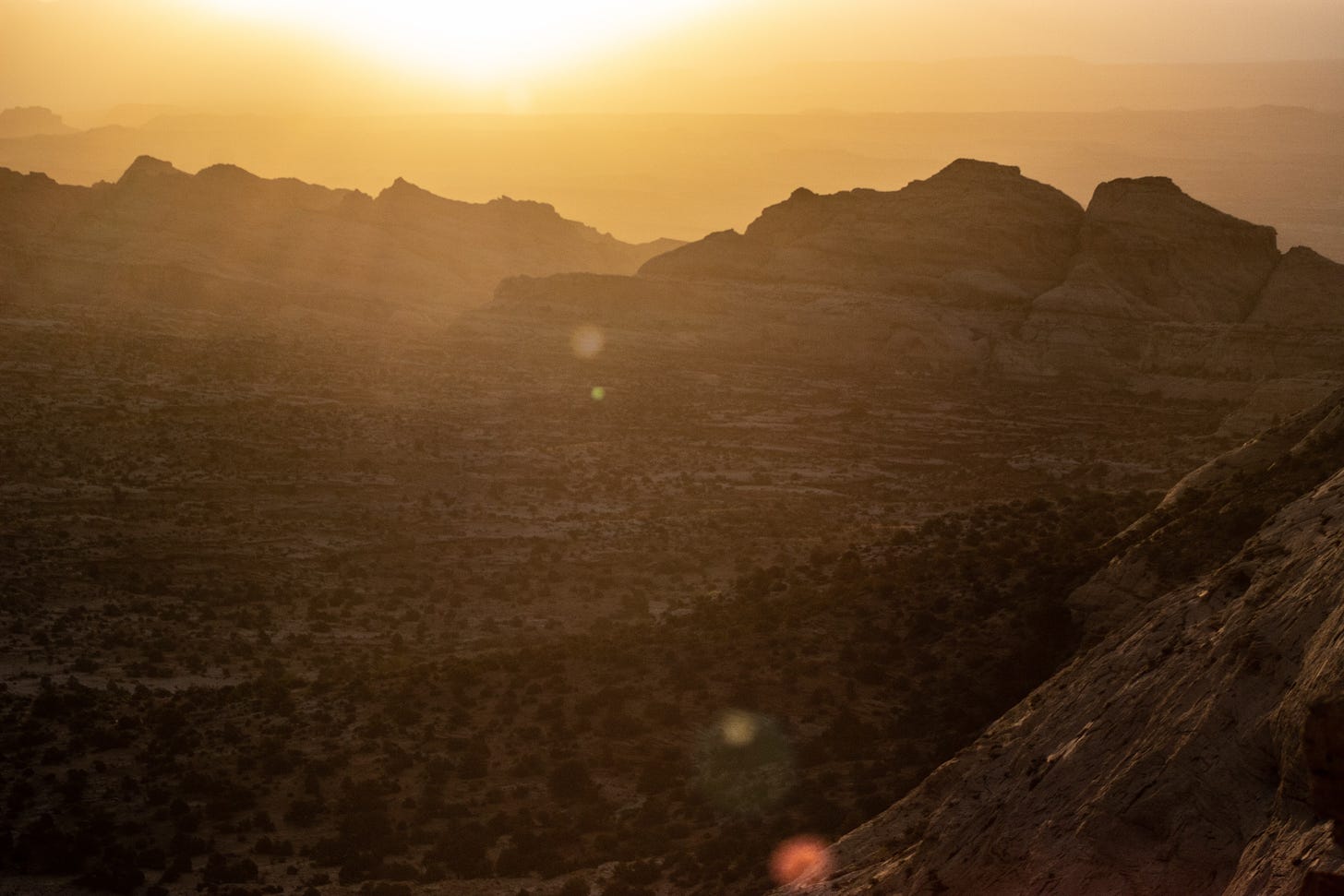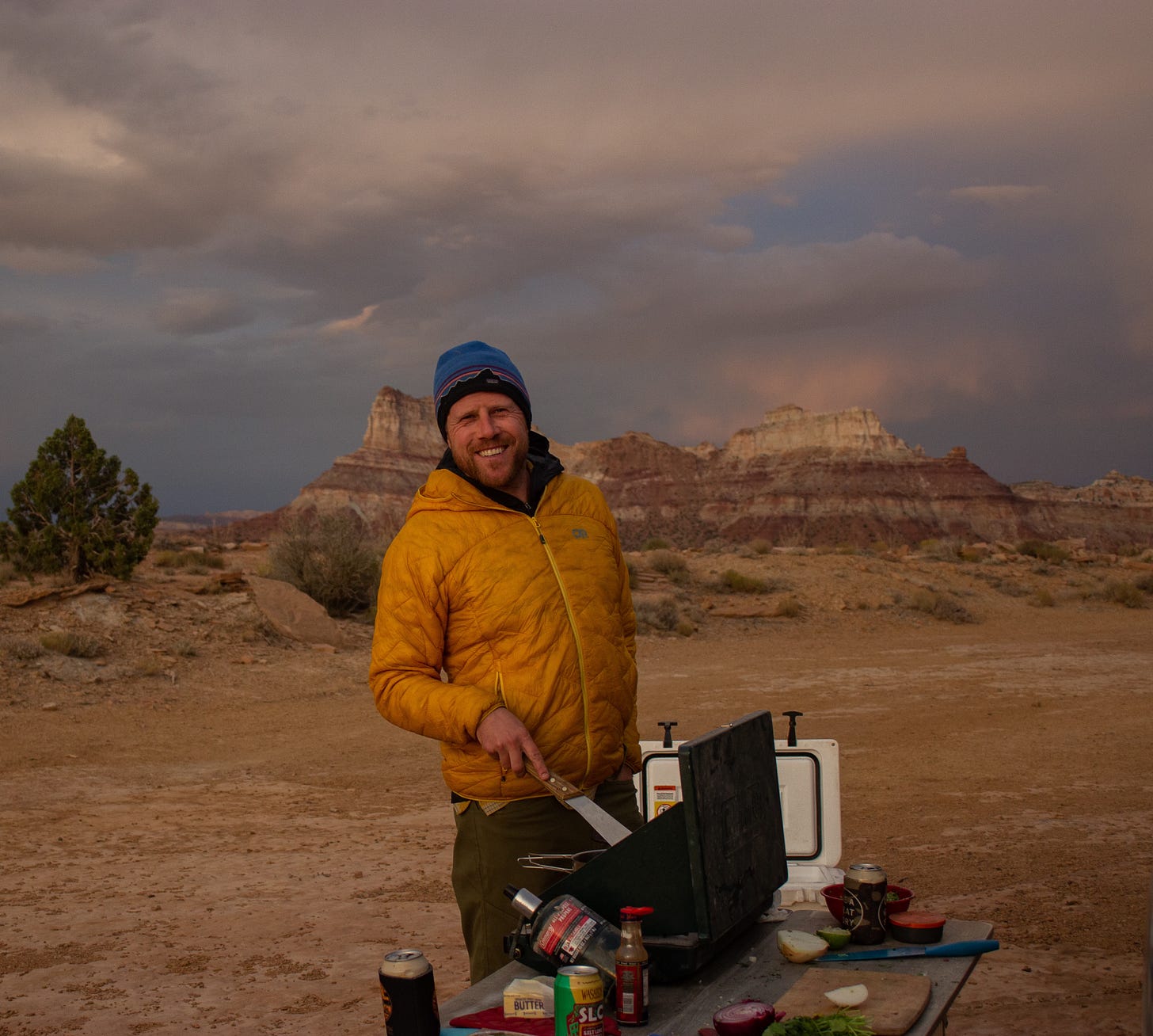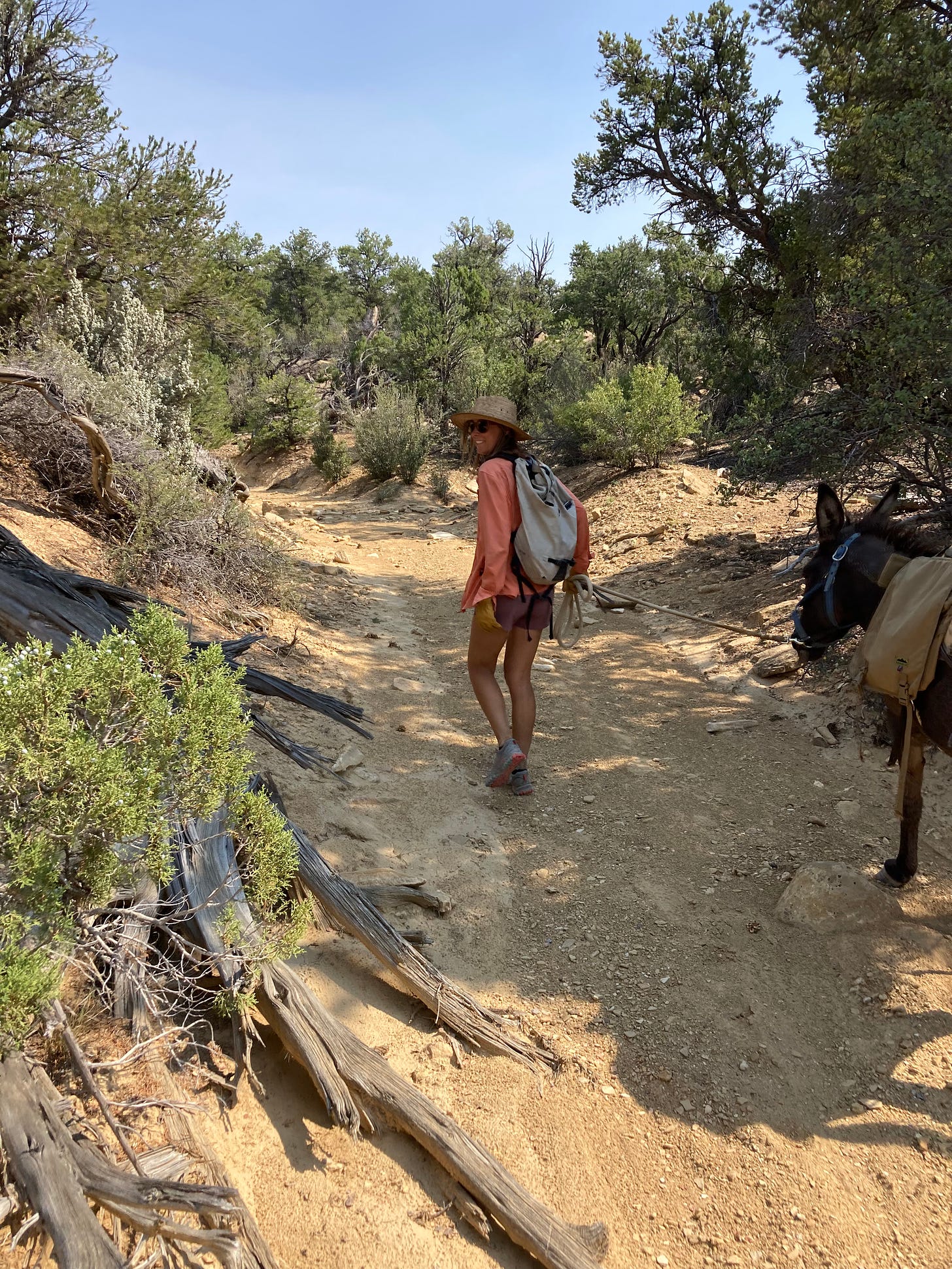I live a quiet life. On work days, I tap at the keys or scribble across a page at the trailer or beside a river. Unless I am interviewing a source for an article, I may go many hours without talking to anyone, myself included. My reprieve from such work, in the afternoon or on days off, typically involves walking down a canyon or scrambling atop a mesa where I can enjoy spaces that are even quieter than inside my own head.
This is not to say I am a mute, hermit, or antisocial. I devour delicious conversations where all people are engaged in the art of storytelling, reflection, or contemplation together. I happen to live with a man who does this dance artfully with me. I am a woman of letters, and my closest confidants and I savor written conversations with airy freedom to reply before the words fly cross-country to one another.
I confess, during my most recent desert trips I did no writing at all. I was too moved to listen––to the river flowing, willows rusting, coyotes yipping, even flies buzzing and nagging. I listened to my friends tell stories. I listened to how special it felt to flow down river with Aaron. To truly listen is not to prepare what you want to say (or write) next. It sometimes requires overriding the subconscious compulsive fear that if we do not take copious detailed notes and photograph every moment of our lives we will forget something precious. During my outings, I occasionally elect to document less of my experiences, as an experiment in observing what details hang on. When I do feel called to write, it is no longer the act of recording everything, but a release of what will not let go.
This has rippled into other areas of my life; my eardrums having attuned to savor long pauses between wind gusts. After such intimate and soothing exchanges with nature, where I listen without expectation of a show, returning to the ceaseless chatter on social media, which alas, even includes this space, now fills me with a form of dread akin to eating a very greasy burger and ordering another beer. I know it is not good for me. Though I continue to share, I confess it becomes harder and harder for me to press “publish” or “post.” This draft has sat in my drafts for some time now.
More and more, it seems everyone has a daily announcement of some importance to make, or a highlight from their life they share. To get your point across you must join in the shouting match of the masses, which is very much amplified in this election year. To be an artist of any medium now requires, to a certain extent, to also be a content creator. Increasingly, it feels like artists share with the expectation of support, without making much effort to reciprocally do the same for other artists.
In a recent episode of the Ezra Klein Show, novelist Zadie Smith discussed the ways social media is altering human behavior. It was an important discussion because we are often quick to judge how people act, what they share, or don’t share online. Spoiler: She does not use social media at all, reminding artists everywhere, there are still other ways to navigate this. Meanwhile, there are greater forces of social reconstruction behind our screens at work. Thinking about it this way makes me even more wary to share and even less eager to engage. I am certainly not severed from this behavior, simply by being here now, but what I want to talk about is how social media makes me feel. I wonder how it makes you feel too?
There are stories I want to share, that I hope people may read and enjoy, but I do not feel like yelling out into the social experiment we are living through. That is hostile territory to something meant to be digested delicately, that is best read quietly or shared at a lower volume. Writing requires an awful lot of listening. Listening to people, nature, and even ourselves. Listening by taking the time to read books. Listening to our need to pause, to kill your darlings, along with the belief that you must or could possibly always have something to say.
The art form of writing is not mere telling, regurgitating, stream of consciousing, or blathering. This is true of news and journalism too. While I do not wish to diminish my profession, I can wholeheartedly say that stories would be better if there were longer periods in between less of them. Writing stories is not meant to hold the reader hostage, nor is that a vehicle for truly listening. Written words are a door that opens an intimate exchange between storyteller and listener. It allows the receiver of the story to proceed at their own pace. And in doing so, the listener is a portal into yet another realm into which the story evolves. It is a space of observation that allows us to see what memories, in time, stick with us.
In the pauses between bursts of creative inspiration to share, I am often silent but not blank. I am listening to the world. I consider this the most important phase of writing. Yet, at this moment, I sense the noise online being too great for this to occur in that space. And to think that this does not spill over into our interactions offline is foolish.
Why am I sharing about my reluctance to share?
It’s a silly question I keep asking myself. I believe it is because I do want to share, but I feel distanced from modes of sharing that are more meaningful than our current online options. I crave reciprocal exchanges which at best social media feel increasingly shallow and performative. Meanwhile, some folks do not even pretend to want dialogue in hopes everyone tunes into their “All About Me” channel.
Kris Kristoferson said it best:
"If you waste your time a-talkin'
To the people who don't listen
To the things that you are sayin'
Who do you think's gonna hear?
And if you should die explainin' how
The things that they complain about
Are things they could be changin'
Who do you think's gonna care?"
There were other lonely singers in a world turned deaf and blind
Who were crucified for what they tried to show
And their voices have been scattered by the swirlin' winds of time
'Cause the truth remains that no one wants to know
I have had this conversation with a few close friends in person, through letters, and on the phone. Despite my preference to exist outdoors, online is still where all the people are these days. At least their eyeballs and attention spans. Rather than press send or wrestle too much with this existential dilemma, most days I walk quietly away from my drafts and find ways to listen.
Though it is possible to infuse our existence with introduced noises streaming 24 hours a day with endless podcasts, playlists, TikTok, livestreams, and insta news rooms this is not what I mean. I lament the loss of quiet spaces, of physical distractions not digital, and yes, even boredom that this digital culture creates.
My cries out into the Wilderness about this were certainly listened to this week by Jack Loeffler. Jack is an aural historian, author, anarchist, and nature lover in its purist sense. Jack has specifically spent years of his life recording stories and songs of Indigenous people worldwide. Everything he writes or records, about any topic, is done with the reverence gleaned from listening to people with perspectives and life experiences vastly different than the colonial Western European framework.
I met Jack at a book event a few years ago, and have enjoyed corresponding with him through letters and emails since. This week he sent me a thumb drive with recordings from conversations with Edward Abbey and Gary Snyder. There are others, related to my Colorado River research, but these two are most pertinent here. Now, when I recognize my sharing fatigue or outright dread building, I shut down my laptop, lie down on the couch or outside in the dirt, and turn up the volume to listen to Jack, Ed, and Gary. Please picture me in this arrangement next time you consider reaching for your phone to fill a void.
What a delight it is to listen intently to some of the wisest radical environmental philosophers of the last decade. Their predictions from the 1970s and ‘80s ring hauntingly true today. Ed in particular speaks to me as a writer in his humerous honesty about this profession. At one point in the recording, he discusses living on a $500 book advance for several months. I have lived similarly, and yet today, I have not met another author who has opened up about their poverty status. I often wonder why that is, and hypothesize that to admit economic failure is assumed to associate you with being a literal literary failure. That is also to assume that people are not actually reading, meaning listening, to your writing and instead making assumptions about it based on status. I digress and will come back to this in future writing.
Jack also sent a copy of his new book, A Pagan Polemic, a sweeping manifesto of Jack’s core beliefs and long experience as a fierce (and funny) advocate for Nature and Nature-mindedness and against poisonous politics and policies.
In it, he writes about his many experiences with listening:
The passage above was excerpted from a 1993 issue of Wild Earth edited by the late Dave Foreman. In turn, I listen intently as I turn the pages of this important book. Though each essay is densely packed with Indigenous perspectives, scientific dilemmas, and cultural environmental philosophy, I have been struck most by Loeffler’s simpler credos, including:
“We must bear in mind that present political legislation often rules in favor of economics over health of habitat…If all this seems overwhelming and beyond one’s ken, one can plant some tomatoes, set out water for the birds, and write a poem––and empower one’s self to interpret the voices of homeland in juxtaposition with what one reads in the Times or hears during the News Hour.”
It made me realize when I water or pluck vegetables from the garden it is a way I listen to the land, just as I listen to my body’s need for nourishment. And this is not removed from other selective listening decisions based on personal and ecosystem well-being, including the decision not to share so much.
A flock of geese wake me each morning at home in the little trailer. Soon, roosters and trucks will break the night’s relative silence, but my audible sense of home is linked to these waterfowl circling the wild river and massive reservoir beyond this rural town. Next, there is time in the garden, marveling at the ripened tomatoes and lush chard. It takes several cups of coffee to break the peace of listening to my surroundings by looking at my goddamn phone. Though it is silenced I can see the noise through the blue light. The geese circle back, I set down my phone, open the door, and step out to listen.
Yes, the comments are still ironically turned off on this post. I do care about your thoughts and would love to find ways to engage in meaningful conversations with readers at a pace our weary nervous systems can tolerate. (I am scheming up my P.O. Box location that you can address real letters to.) However, I still hope that reading my ramblings about listening will inspire you to consider the different modes of listening you engage in, and how what you share (or don’t) is a part of that process. And through this all, I wonder, how does it make you feel?
Be well, friends. 🧡
Morgan
Postscript:
After a month of clawing around the desert doing very desert rat things––looking for my friend’s grandfather’s uranium mine claims, hiking with pack burros, and paddling the Green River with a ripening melon––I too am surprised that this is what I decided to write about. Thanks for letting me get it out of my head space, for now, so I can flow on to writing about something else.
Until then, a few parting shots:




